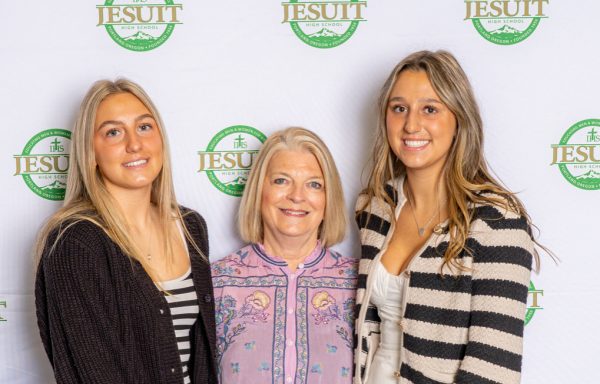Holiday magic evolves alongside age
Decorative Santa sack
Lifestyle
Holiday magic evolves alongside age
By Rosa Madden
Staff Writer
From a child to a parent, the Christmas spirit seems to never fade, even if the presents do.

Courtesy of Google Images
From a young age, Christmas is often associated with hot drinks, homemade cookies, and an abundance of presents around the tree. Children’s smiles and eyes light up at the happy thoughts of waking up to see a pile of presents and stockings stuffed.
Sophomore Grace Mayfield explains how her dad would read her books about the birth of Jesus and spreading love, but instead of her interest lying in the stories, she focused more on the presents behind him.
“When I was younger, Christmas was all about getting presents. I’d always write the longest wish list, [which was] all this stuff that I didn’t even need,” Mayfield said.
However, as children grow into teenagers through middle and high school, the emphasis on receiving presents fades, replaced with reuniting with family and loved ones. Spending time with family members starts to become rare as people grow older, so the holidays become the time to reconnect with everyone’s lives.
“Now it’s all about seeing my family, because all my siblings are in college so I only get to see them once a year,” Mayfield states.
As holidays become a time to reunite with family, it also creates an opportunity to discover the joy in giving presents opposed to solely receiving them. Seeing people’s genuine excitement and happiness when receiving a gift is very special and wholesome.
“After a while most of the stuff I was given didn’t last very long, but the smiles, the things I was able to give to other people is something I can remember for a lifetime,” senior Chris Beardall said.
A study done by Psychology researchers Ed O’Brien from the University of Chicago and Samantha Kassirer of Northwestern University reveals why humans eventually tend to enjoy giving more than receiving. When one receives something good, they set themselves up for less happiness, because gifts can be easily comparable and therefore desensitizing the experience. However, when one gives, comparison becomes less important and the focus shifts to giving as a unique and personal event (Big Think).
As a parent, instead of receiving high amounts of gifts, they get to give presents to their children. Parents watch their own children experience the same joy they had when they were young.
“[Christmas is] much more about how can I make my kids’ day and how can I teach my kids that Christmas goes beyond you,” Theology teacher Mrs. Barry said. “That Christmas is supposed to be about how Jesus loved you so much that he came into the world, and how can you continue that love and give it to other people.”
Barry also recognizes that some people can’t afford many presents for their loved ones or maybe some don’t have family to celebrate Christmas with. Because of this, she donates clothing to the Portland Rescue Mission and brings her family to sit at St. Andre Cafe. Barry also has her kids write letters to people in their life who matter, to enforce that the holidays are also about figuring out how they can love others and show gratitude for those people in their lives.

Rosa Madden, a junior at Jesuit High School, is taking her first year of journalism this year. She’s excited to write articles for the paper and explore new topics such as the rules, norms, and trends at Jesuit. Taking a look at Jesuit’s sport’s teams and academic achievements as well as struggles also sounds interesting. Stepping back from everyday life, Rosa would also like to look at more national topics as well as global ones, too. At Jesuit, Rosa’s day is full of classes and extracurricular activities. Her favorite subject is English, even if it can be quite difficult at times! Aside from schoolwork, Rosa busies herself after-school with cross country, swimming, track, and various clubs. She likes feeling accomplished everyday, allowing her to be more productive while working on homework later in the night. When she’s not at school, Rosa loves to read, take pictures, play with her dog, and bake. She bakes mainly a lot of cookies and cakes, but she also likes to explore new recipes either passed down from her mom or looking them up on the internet. Another pastime of Rosa’s is participating in Girl Scouts. From working on the Gold Award to completing numerous journeys, Rosa plans to finish Girl Scouts through high school.








